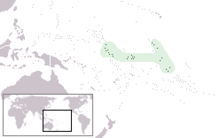
Lesbian, gay, bisexual, and transgender (LGBT) people in Kenya face significant challenges not experienced by non-LGBTQ residents. Sodomy is a felony per Section 162 of the Kenyan Penal Code, punishable by 21 years' imprisonment, and any sexual practices are a felony under section 165 of the same statute, punishable by five years' imprisonment. On 24 May 2019, the High Court of Kenya refused an order to declare sections 162 and 165 unconstitutional. The state does not recognise any relationships between persons of the same sex; same-sex marriage is banned under the Kenyan Constitution since 2010. There are no explicit protections against discrimination on the basis of sexual orientation and gender identity. Adoption is restricted to heterosexual couples only.

Lesbian, gay, bisexual, and transgender (LGBT) people in Nigeria face severe challenges not experienced by non-LGBTQ residents. LGBT rights are generally infringed upon; both male and female expressions of homosexuality are illegal in Nigeria and punishable by up to 14 years of prison in the conventional court system. There is no legal protection for LGBT rights in Nigeria—a largely conservative country of more than 230 million people, split between a mainly Muslim north and a mainly Christian south. Very few LGBT persons are open about their sexual orientation, as violence against them is frequent. According to PinkNews, Nigerian authorities generally target the LGBT community. Many LGBT Nigerians are fleeing to countries with progressive law to seek protection.
The ages of consent for sexual activity vary from age 15 to 18 across Australia, New Zealand and other parts of Oceania. The specific activity and the gender of its participants is also addressed by the law. The minimum age is the age at or above which an individual can engage in unfettered sexual relations with another person of minimum age. Close in age exceptions may exist and are noted where applicable. In Vanuatu the homosexual age of consent is set higher at 18, while the heterosexual age of consent is 15. Same sex sexual activity is illegal at any age for males in Papua New Guinea, Kiribati, Samoa, Niue, Tonga and Tuvalu; it is outlawed for both men and women in the Solomon Islands. In all other places the age of consent is independent of sexual orientation or gender.
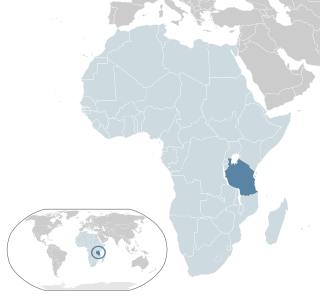
Lesbian, gay, bisexual, and transgender (LGBT) people in Tanzania face severe challenges not experienced by non-LGBTQ residents. Homosexuality in Tanzania is a socially taboo topic, and same-sex sexual acts are criminal offences, punishable with life imprisonment. The law also criminalises heterosexuals who engage in oral sex and anal intercourse.

Lesbian, gay, bisexual, and transgender (LGBT) people in Benin face legal challenges not experienced by non-LGBTQ residents. Although same-sex sexual acts for both men and women are legal in Benin, homosexuals continue to face widespread persecution and are rarely open about their sexuality. They are also considered by many as deviants to the society, and homosexuality is often called a disease brought by white people to the country. LGBT persons additionally face stigmatization among the broader population.

Lesbian, gay, bisexual, and transgender (LGBT) people in the Gambia face significant challenges not experienced by non-LGBT residents. Same-sex sexual activity is illegal for both men and women in the Gambia. Criminalisation commenced under the colonial rule of the British. The 1933 Criminal Code provides penalties of prison terms of up to fourteen years. In 2014, the country amended its code to impose even harsher penalties of life imprisonment for "aggravated" cases. The gender expression of transgender individuals is also legally restricted in the country. While the United States Department of State reports that the laws against homosexual activity are not "actively enforced", arrests have occurred; the NGO Human Rights Watch, reports regular organised actions by law enforcement against persons suspected of homosexuality and gender non-conformity.
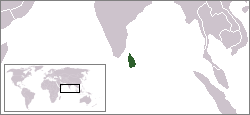
Lesbian, gay, bisexual, and transgender (LGBT) people in Sri Lanka face significant challenges not experienced by non-LGBT residents.
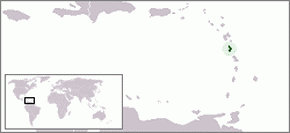
Lesbian, gay, bisexual, and transgender (LGBT) people in Dominica face legal challenges not experienced by non-LGBTQ residents. Homosexuality has been legal since 2024, when the High Court struck down the country's colonial-era sodomy law. Dominica provides no recognition to same-sex unions, whether in the form of marriage or civil unions, and no law prohibits discrimination on the basis of sexual orientation or gender identity.

Lesbian, gay, bisexual, and transgender (LGBT) people in Guyana face legal and societal challenges not experienced by non-LGBTQ residents. Guyana is the only country in South America, and the only mainland country in the Americas, where homosexual acts, including anal sex and oral sex, are illegal. Cross-dressing was illegal until November 2018, when the statute was struck down by the Caribbean Court of Justice, the court of last resort of Guyana.

Lesbian, gay, bisexual, and transgender (LGBT) people in Malawi face legal challenges not experienced by non-LGBTQ residents. Both male and female expressions of same-sex sexual activity are illegal within the nation. The Penal Code prohibits "carnal knowledge against the order of nature", attempts to commit "carnal knowledge against the order of nature", and acts of "gross indecency". Homosexuality among men is punishable by up to 14 years in prison in the country, while homosexuality among women is also punishable by up to five years in prison. There are no protections for LGBT rights in the country.

Lesbian, gay, bisexual, and transgender (LGBT) people in Zambia face significant challenges not experienced by non-LGBTQ residents. Same-sex sexual activity is illegal for both men and women in Zambia. Formerly a colony of the British Empire, Zambia inherited the laws and legal system of its colonial occupiers upon independence in 1964. Laws concerning homosexuality have largely remained unchanged since then, and homosexuality is covered by sodomy laws that also proscribe bestiality. Social attitudes toward LGBT people are mostly negative and coloured by perceptions that homosexuality is immoral and a form of insanity. However, in recent years, younger generations are beginning to show positive and open minded attitudes towards their LGBT peers.

Lesbian, gay, bisexual, and transgender (LGBT) persons in Antigua and Barbuda may face legal challenges not experienced by non-LGBTQ citizens.
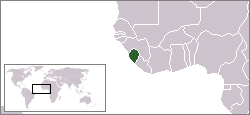
Lesbian, gay, bisexual, and transgender (LGBT) people in Sierra Leone face legal challenges not experienced by non-LGBTQ residents. Male same-sex sexual activity is illegal in Sierra Leone and carries a possible penalty of life imprisonment, although this law is seldom enforced.

Lesbian, gay, bisexual, and transgender (LGBT) people in Niue face legal challenges not experienced by non-LGBTQ residents. Male same-sex sexual activity is illegal in Niue, although there is no recent instance of it being actively prosecuted. Same-sex couples and households headed by same-sex couples are not eligible for the same legal protections available to opposite-sex married couples.
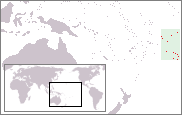
Lesbian, gay, bisexual, and transgender (LGBT) people in the Cook Islands face some legal challenges not experienced by non-LGBTQ residents, but these challenges have gradually lessened in recent years. As of 1 June 2023, homosexual acts between men became legal in the Cook Islands after a vote by the Parliament of the Cook Islands. Female homosexual acts have never been illegal. Same-sex marriage is outlawed. Nevertheless, LGBT people do enjoy some limited legal protections, as employment discrimination on the basis of sexual orientation has been banned since 2013.

Lesbian, gay, bisexual, and transgender (LGBT) people in Grenada may face legal challenges not experienced by non-LGBT residents. The penal code makes same-sex acts on Grenada proper illegal with a punishment up to 10 years in prison, it also does not address discrimination or harassment on the account of sexual orientation or gender identity, nor does it recognize same sex unions in any form, whether it be marriage or partnerships. Household headed by same-sex couples are also not eligible for any of the same rights given to opposite-sex married couples.
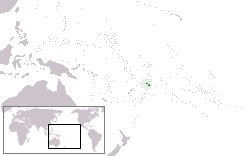
Lesbian, gay, bisexual, and transgender (LGBT) people in Samoa face legal challenges not faced by non-LGBT residents. Sexual contact between men is illegal, punishable by up to seven years’ imprisonment, but the law is not enforced.
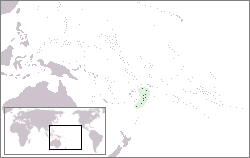
Lesbian, gay, bisexual, and transgender (LGBT) people in Tonga face legal challenges not experienced by non-LGBT residents. Male homosexuality is illegal in Tonga, with a maximum penalty of 10 years imprisonment, but the law is not enforced.
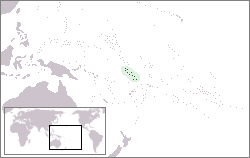
Lesbian, gay, bisexual, and transgender (LGBT) people in Tuvalu face legal difficulties not experienced by non-LGBT residents. Sections 153, 154 and 155 of the Penal Code outlaw male homosexual intercourse with a penalty of up to 14 years in prison, but the law is not enforced. Employment discrimination on the basis of sexual orientation has been banned since 2017. Since 2023, the Constitution of Tuvalu has banned same-sex marriage.

Lesbian, gay, bisexual, and transgender (LGBT) persons in Northern Nigeria face unique legal and social challenges not experienced by non-LGBT residents. Federal law prohibits all forms of homosexual activities and prescribes up to 14 years imprisonment for those found culpable. While the Maliki form of Shari'a law applied in 12 states have lesser penalty for unmarried persons, it prescribes the death penalty for married individuals.
